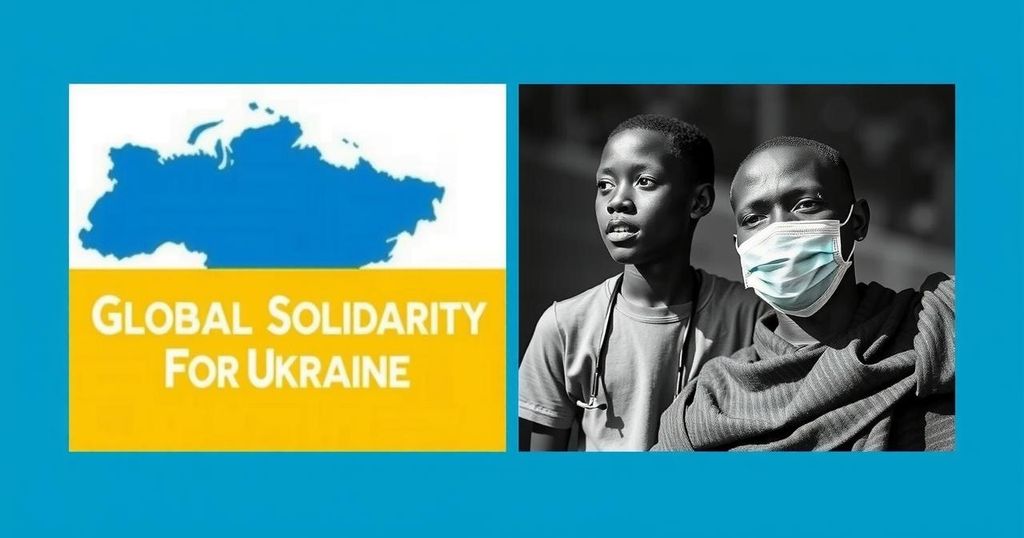The UN’s Emergency Relief Coordinator visited Ukraine, reaffirming support amid ongoing conflict. He highlighted civilian casualties and community resilience. In Haiti, the UN commemorated the 2010 earthquake victims, acknowledging ongoing challenges for survivors. Additionally, a new $82 million partnership aims to restore Sudan’s health services severely impacted by conflict.
The United Nations’ Emergency Relief Coordinator, Tom Fletcher, has reiterated international support for Ukraine amid ongoing aggression from Russian forces. In a visit to Zaporizhzhya, Fletcher reported severe civilian casualties and damage due to air strikes and emphasized the resilience of Ukrainian communities. He also highlighted initiatives such as underground schooling to protect children from the violence.
Fletcher’s itinerary included a visit to Dnipro to evaluate the assistance offered to displaced individuals. He will collaborate with the UN’s refugee agency head, Filippo Grandi, launching the humanitarian response plans for 2025 aimed at aiding over eight million affected by the war, building on the previous year’s success.
UN Secretary-General António Guterres commemorated the victims of the catastrophic 2010 Haiti earthquake, which claimed hundreds of thousands of lives. The UN marked this anniversary by honoring the 102 staff members lost, including mission chief Hédi Annabi, and acknowledged the ongoing struggles faced by around three million survivors, commending the resilience of the Haitian populace.
Meanwhile, the World Bank, WHO, and UNICEF have entered into an $82 million initiative to bolster Sudan’s health system, which has been crippled by conflict. More than 70 percent of health facilities in affected areas remain non-operational, and critical health services, particularly for children, have been severely compromised. The investment will enable the delivery of essential medicines and immunizations while enhancing local health capabilities.
The article discusses recent significant events involving international humanitarian efforts, highlighting the UN’s support for Ukraine amid conflict, commemoration of Haitian earthquake victims, and vital healthcare initiatives in Sudan. Each of these issues reflects broader global humanitarian challenges and responses, showcasing how international bodies like the United Nations and associated agencies play critical roles in addressing crises affecting millions of people around the world. The focus encompasses both immediate responses to disasters and the long-term commitment to rebuilding and sustaining health systems vital for affected populations.
In conclusion, the ongoing commitment by the international community to support Ukraine amidst its conflict, the remembrance and continued aid for Haiti’s earthquake victims, and the significant investment to restore healthcare services in Sudan exemplify the UN’s active engagement in global humanitarian efforts. These initiatives not only provide immediate relief but also pave the way for future resilience and recovery in these regions.
Original Source: news.un.org






